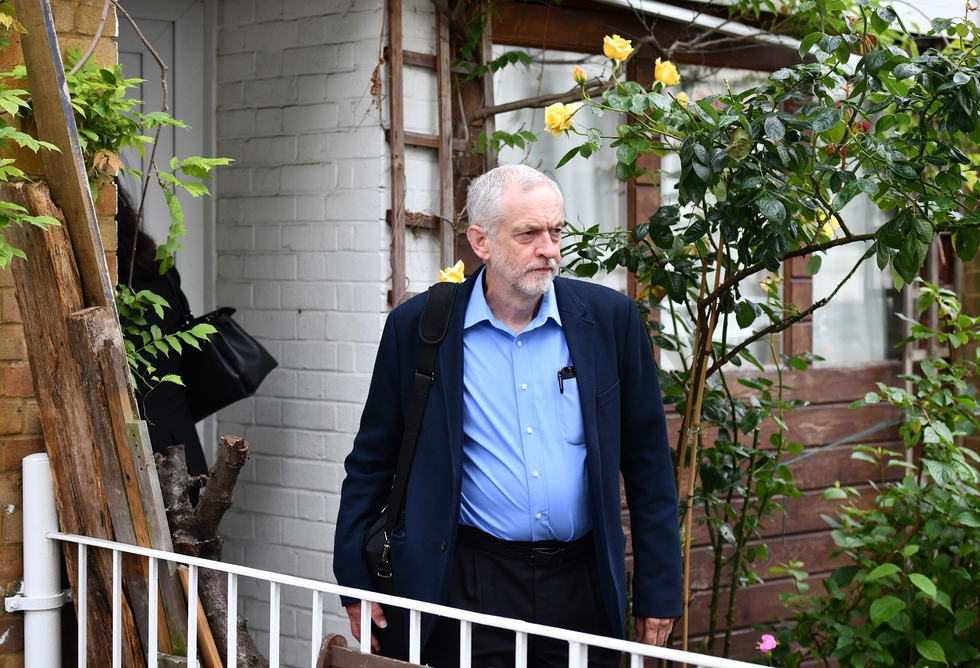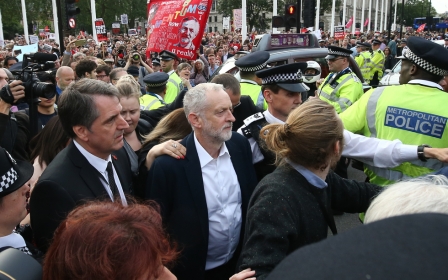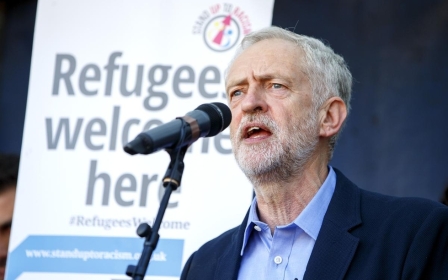Labour anti-Semitism inquiry calls for tightening of anti-racism rules

A report into anti-Semitism in the British Labour Party has called for a tightening of rules surrounding racist abuse, while also recommending other disciplinary measures than expulsions and suspensions..
The inquiry was called by party leader Jeremy Corbyn following a storm of controversy over comments by former Labour mayor Ken Livingstone alleging that Hitler had been sympathetic to the Zionist movement, and social media posts by a Labour MP and party activists that were said to be anti-Semitic.
The report, compiled by former Liberty chief Shami Chakrabarti, was released on Thursday following two months of research and submissions from Jewish and anti-racist organisations.
Among the recommendations in the report was for a more nuanced and careful approach to the use of the term “Zionist”, which it said was often used indiscriminately and with reference to Jewish conspiracy theories.
It said that Labour members “should resist the use of Hitler, Nazi and Holocaust metaphors, distortions and comparisons in debates about Israel-Palestine”.
Chakrabarti said negative terms such as "Zio", "Paki" and other racial or religious epithets should not be used in party discourse.
“It seems to me that it is for all people to self-define their political beliefs and I cannot hope to do justice to the rich range of self-descriptions of both Jewishness or Zionism, even within the Labour Party, that I have heard,” reads the report.
“My advice to critics of the Israeli State and/or government is to use the term ‘Zionist’ advisedly, carefully and never euphemistically or as part of personal abuse.”
In the report, Chakrabarti said she recommended the “appointment of a General Counsel to the Labour Party and additional and appropriately expert staff” as well as the appointment of a panel of volunteer lawyers assist in providing guidance on procedures in cases of suspension or expulsion from the party.
Speaking at a press conference Thursday morning, Labour leader Jeremy Corbyn welcomed the report’s findings.
He said Jewish people " a minority amongst minorities and have had good cause to feel vulnerable and even threatened throughout history. This should never happen by accident or design in our Labour Party.
He condemned the conflation of British Jews with the state of Israel and said terms like “Zio” had no place in the party.
"'Zio' is a vile epithet. Our Jewish friends are no more responsible for the actions of Israel or the Netanyahu government than our Muslim friends are for those of various self-styled Islamic states or organisations," he said.
He added that members should “leave Hitler and Nazi metaphors at home,” possibly in reference to former ally Ken Livingstone, who was suspended from the Labour Party in April after making comments suggesting Hitler was a supporter of Zionism.
Turmoil erupted at the press conference, however, after Labour MP Ruth Smeeth was reportedly heckled by an activist who accused her of working with the Telegraph to undermine Corbyn.
The MP was seen leaving the conference in tears.
Shortly after the conference, some media outlets and commentators claimed that Corbyn had compared Israel to IS and accused him of anti-Semitism.
Initially, Corbyn was quoted by some, including the Guardian, as having said "our Jewish friends are no more responsible for the actions of Israel than Muslims are for Islamic State."
The Guardian later adjusted the quote, but other outlets continued to use it.
The initial controversy was sparked in April when Labour MP for Bradford West, Naz Shah, was suspended after it was discovered that she had previously posted on her Facebook pages suggestions that Israel should be moved to the United States.
New MEE newsletter: Jerusalem Dispatch
Sign up to get the latest insights and analysis on Israel-Palestine, alongside Turkey Unpacked and other MEE newsletters
Middle East Eye delivers independent and unrivalled coverage and analysis of the Middle East, North Africa and beyond. To learn more about republishing this content and the associated fees, please fill out this form. More about MEE can be found here.




